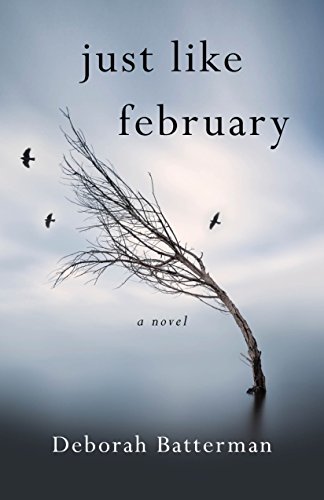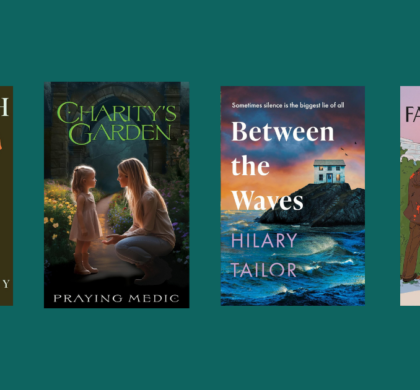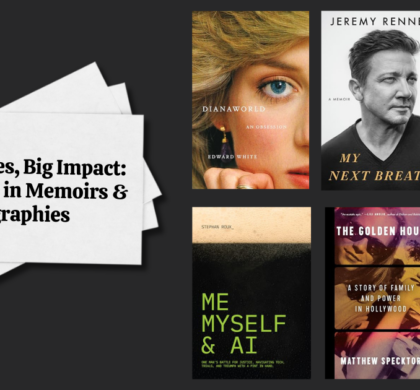The Story Behind Just Like February by Deborah Batterman
19 Feb 2020
By Deborah Batterman
Just Like February is, at its heart, a story of lost innocence, and the ‘80s have always struck me as a time of profound innocence lost in both the personal and cultural realms. They came in on a high and went out on a where-do-we-go-from-here low. Smack in the middle of the decade my husband’s friend and associate in his interior design practice sparked an idea for a new business venture. Within in months of making the decision to move ahead with the plan, our friend was diagnosed with HIV. His progression from HIV to AIDS, and the opportunistic infections that would result in his death, was alarmingly quick. There was no escaping the feeling of walking under a cloud.
These were the early days of HIV/AIDS. So much mystery surrounding what would become an epidemic. Fear and misconceptions of how it could be spread, coupled with homophobia, would reach a pitch. I would do my part to raise awareness, first as editor of a newsletter aimed at AIDS education in the workplace and then as editor of the Design Industries Foundation for AIDS (DIFFA) newsletter. I would lose more than one friend. And I would keep asking myself: how did we get from the sex/drugs/rock’n’roll ‘60s to the sex-as-death ‘80s? And what were the implications for a young person coming of age during the decade that gave us Gordon Gekko, Ronald Reagan, and AIDS?
Coming-of-age narratives take a young protagonist from innocence to experience, often via an emerging awareness of sex or death. The AIDS epidemic gave us both. A story began to take shape, centered on a girl’s relationship with a very special uncle. The opening lines would set the tone for a narrative that, I hoped, would transcend stereotypes:
“The summer I was born Neil Armstrong walked on the moon, Ted Kennedy put Chappaquiddick on the map, and my parents, along with my uncle Jake and me, set out on a pilgrimage to Woodstock. Only Jake got there.”
The charismatic gay uncle, not the hippie parents, is the one who gets to Woodstock.
Archetypes play their part in the novel: Rachel’s mother is a social worker, her father a Vietnam veteran, and what better pairing could there be to symbolize the ‘60s and their emblematic end? More to the point, it’s Rachel’s voice, in all its innocence, that would bring a fresh perspective to the changing times, not to mention the very nature of love. Playing counterpoint to Rachel’s coming of age would be a very strong-minded grandmother coming to grips with the changing nature of family, not to mention the realization of her worst nightmare.
In the same way that I envisioned a character born in the legendary summer of 1969, I couldn’t help but see the poignancy of her sexual awakening at a time when her beloved uncle was dying. The years between would be threaded by key moments in her life set against a backdrop of events that gave definition to the ‘60s, ‘70s, and ‘80s. Anchoring her through it all is Jake.
Synchronicity sometimes plays its part in a novel’s publication. By no small coincidence, Just Like February would end up being published at a time when the ‘80s seem to be back, with a vengeance. And now we have a Leap Year. Of all the months in the year, February has me most mystified. How/why did February become the shortest month? What would it mean to be born on February 29th, a leap year baby? More to the point, learning that, in ancient times, it was the last month of a 355-day year and it gets its name from the god of ritual purification sealed the deal on the title of my novel. What sounds like a simile—just like February—has all the makings of a metaphor.
Over and over again we hear that facts don’t change people’s minds, stories do. It’s in the telling of stories, fictional or otherwise, that we bring a human dimension to underlying issues. In the way I was personally touched by the early days of the AIDS crisis, I could not help but be moved, even angered, by stories in the news that spoke to the bigger picture of unfounded fear and ignorance. I was haunted by the photo of a child standing outside his school holding up a placard that read: No kids with AIDS in our grade. This was a reaction to the protests against Ryan White, a hemophiliac teenager who contracted HIV via a transfusion and it took AIDS beyond the perception of a ‘gay plague,’ with its homophobic implications, which were bad enough. Who better than a fictional girl with parents rooted in ‘60s activism and a gay uncle who teaches her to see past the obvious to shed a light on how we define heroes?
Deborah Batterman is the author of Just Like February, Shoes Hair Nails, and Because my name is mother. A BuzzFeed pick, Just Like February has been named a finalist in the Next Generation Indie Book Awards, ABF Best Book Awards, American Fiction Awards, and International Book Awards.
Buy the book, available today (2/19) for $0.99

Deborah Batterman is the author of the new book Just Like February.
Connect with Deborah:
Author Page
Buy The Book
Sign up for our email and we’ll send you the best new books in your favorite genres weekly.



